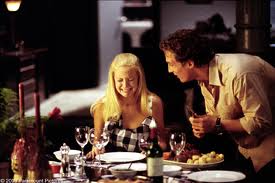I sat down at my computer, closed my eyes, and pictured the scene I was about to write.
Master writers like Siri Mitchell nominated for this year's Christy Award and Lynn Austin 5 time winner of the Christy Award have conquered this problem by:
**Investing hours, days, weeks, and even months researching their topic
**Filtering through pages of information to include only select valuable details
**Blending the information into the action/dialogue/setting/plot/theme with master craftsmanship
I saw______,
I heard ________,
I touched ________,
I tasted _________,
and I smelled________.
I painted a picture, a 3-D picture with rich words. Yet for some reason my story seemed superficial.
Master writers like Siri Mitchell nominated for this year's Christy Award and Lynn Austin 5 time winner of the Christy Award have conquered this problem by:
**Investing hours, days, weeks, and even months researching their topic
**Filtering through pages of information to include only select valuable details
**Blending the information into the action/dialogue/setting/plot/theme with master craftsmanship
so that....
Readers
Don't
Notice
their great investment.
Take a look at this scene from She Walks in Beauty by Siri Mitchell, page 34
The corset had placed me in an unnatural position, and I could find no comfortable posture in which to sit. Moreover whenever I moved, at lest one of the corset's six hundred bones poked into my sides. I counted the hours until I would be able to take it off and sleep.
But that night, after the maid had removed the corset cover, she handed me my nightgown.
"But you've forgotten to remove the corset."
She curtsied. "You're to wear it, miss."
"I know, And I do. I will. But now it's time for sleep." Aunt had trouble finding maids that performed to her satisfaction. I was beginning to think this one's time, too, was limited.
"You're to wear it while you sleep, miss."
"While I sleep? But if I wear it, I will not seep!"
The maid bowed her head and curtsied again. "Twas the missus's orders."
If I could have reached the laces, I would have untied them myself. I had tried, in fact, that very afternoon. But they were located at the back of the garment and tucked into the corset where I could not find them.
"Your nightgown, miss?"
WOW!
I asked Siri to share her research information with us today.
Mary –
Thanks so much for thinking of me for your series!
I research all of my books the same way.
I try, first, to read broadly about the period, looking for books on the general historic era.
After that, I search for social histories that give more insight into the way people thought about themselves and the world in general.
At this point, I try also to find books that focus on the women’s history of the period. If I can find them, I try to read some biographies or journals kept by women or some books from that era as well.
After reading generally, I turn toward specifics: books about food, furniture, clothing, professions (if applicable), etc.
I’ve found YouTube to be a great source for old-fashioned dances and sites like SnapFish and Shutterfly to be useful for photos taken of places like Plymoth Colony, Castles in Europe, or other tourist sites that are still in existence.
I usually end up with between 200 and 300 sources for each book. Most of these are from the internet (a great source for digitized primary documents and out-of-print books), but a fair number are books.
I’m attaching my bibliography for She Walks In Beauty so you can see the books I read through.
She really sent me the list! Unbelievable!
I usually spend a month or two reading up before I start writing. I prefer to have all the ‘big picture’ research in my head before I start so I can ‘feel’ the era. I don’t mind leaving some of the more specific research (food, clothes, hairstyles) for later drafts.
Let me know if you have further questions. I’d be happy to answer them. And thanks so much for supporting my books!
-Siri
author of A Heart Most Worthy,
She Walks in Beauty, Love’s Pursuit,
A Constant Heart, & Chateau of Echoes
Thanks for the great insights, Siri.
Well, I have more to say on this topic. AND I simply must tell you about Lynn Austin's modeling.
So, I will continue this topic in my next post, September 14th.
Do you have questions for Siri regarding her detailed accuracy craftsmanship?
Have you mastered this skill and are you willing to share tips or examples?
What research did you do prior for your WIP?
How have you changed boring details into exciting text?
Siri not only modeled how to let her reader see and touch the corset--Siri modeled how to let the reader wear the corset
**from She Walks in Beauty by Siri Mitchell, used with permission
author of A Heart Most Worthy,
She Walks in Beauty, Love’s Pursuit,
A Constant Heart, & Chateau of Echoes
Thanks for the great insights, Siri.
Well, I have more to say on this topic. AND I simply must tell you about Lynn Austin's modeling.
So, I will continue this topic in my next post, September 14th.
Do you have questions for Siri regarding her detailed accuracy craftsmanship?
Have you mastered this skill and are you willing to share tips or examples?
What research did you do prior for your WIP?
How have you changed boring details into exciting text?
Siri not only modeled how to let her reader see and touch the corset--Siri modeled how to let the reader wear the corset
**from She Walks in Beauty by Siri Mitchell, used with permission







































